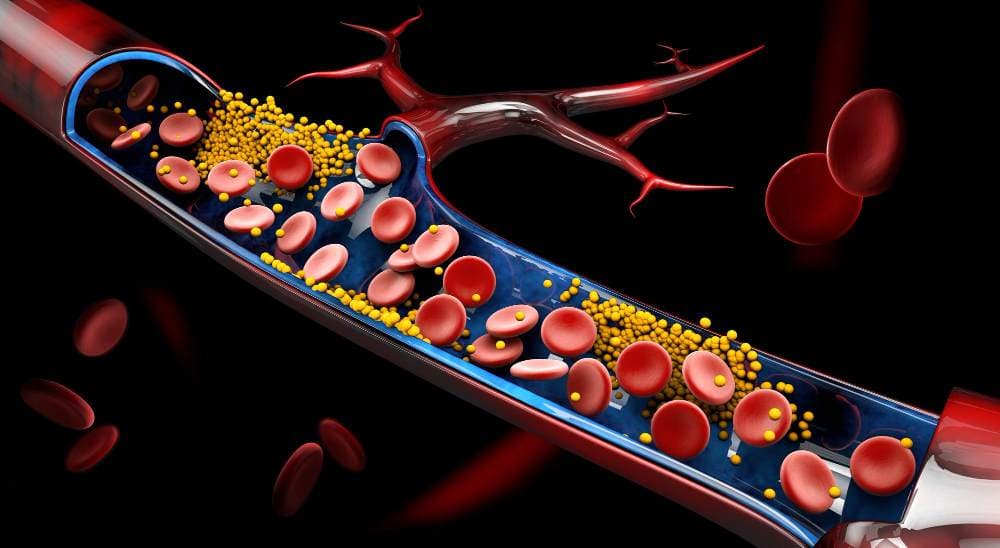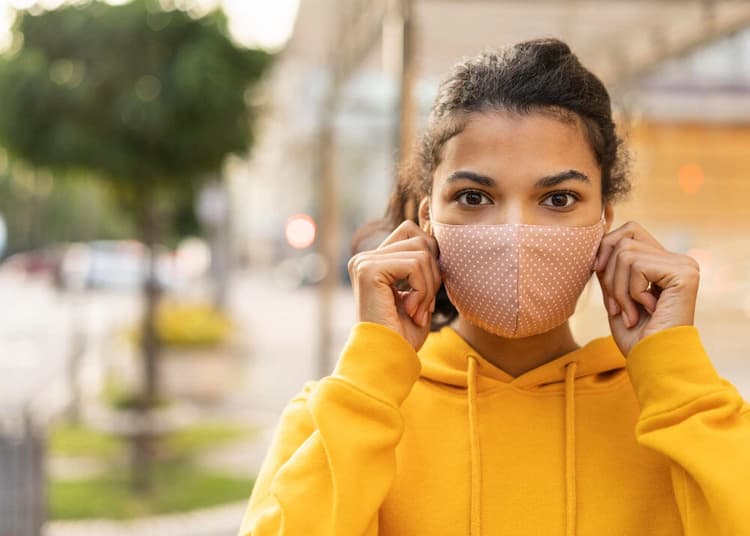How To Clear Blocked Arteries Without Surgery?

Medically Reviewed By
Dr Divya Rohra
Written By Meenakshi
on Feb 3, 2024
Last Edit Made By Meenakshi
on Mar 18, 2024

Arteries are vital passageways for blood to travel through our bodies, delivering vital oxygen and nutrients, much like our roads, bridges, and streets. Maintaining our general health and well-being depends heavily on these essential conduits.
But when impediments like fat, cholesterol, and other materials build up inside of them, it can result in a condition called coronary artery disease or atherosclerosis. In this piece, we examine the significance of arterial health and discuss non-surgical ways to lower plaque accumulation, giving you the tools to take control of your cardiovascular health.
Some methods to naturally decrease plaque in our arteries include:
- Reducing consumption of high-cholesterol food.
- Reducing high blood pressure.
- Quit smoking.
One key point to remember is that it will take time if you opt for the natural removal of plaques from your arteries.
Understanding Atherosclerosis
Plaques build up in the arteries due to atherosclerosis, which prevents blood from flowing freely. This poses a risk of serious complications like angina, coronary artery disease, heart attack, stroke, and more, in addition to limiting the delivery of essential nutrients. Making lifestyle changes like good food and exercise is the first step to naturally clearing arteries.
Here are some foods you must eat and some that you should limit or avoid when you have clogged arteries.
Foods that you should eat:
- Unsaturated fats
- Grains
- Legumes
- Beans
- Oats
- Vegetables
- Fruits
- Nuts
- Seeds
- Dietary fiber
Food to limit or avoid:
- Highly processed foods
- Trans fats
- Saturated fats
- Added sugars
- Excess sodium
- Meat
- Poultry
- Dairy products
- Fish
- Eggs
When do arteries start getting clogged?
The National Heart, Lung, and Blood Institute (NHLBI) states that after 45 and 55, men and women are more likely to develop atherosclerosis. On the other hand, blocked arteries that have been disregarded for an extended period lead to atherosclerosis. This has been found to happen to people between 20 to 30 years. Also, being overweight when you’re young increases your chance of cardiovascular disease later in life.
Tips for Lifestyle Changes:
Other than following a heart-healthy diet, here are some additional tips that may help you unclog your arteries and prevent plaque buildup.
- Preventing heart problems and improving cardiovascular health can be achieved by leading an active lifestyle incorporating regular exercise.
- Plaque buildup in your arteries may be lessened by decreasing your low-density lipoprotein (LDL) and increasing your high-density lipoprotein (HDL) levels. The LDL level indicates the blood level of “bad” cholesterol.
- Maintaining a moderate weight can be achieved by following a heart-healthy diet and leading an active lifestyle. Failure to maintain a healthy weight may cause your LDL cholesterol to increase, increasing your risk of plaque buildup.
- It can dramatically reduce cholesterol and stop plaque from accumulating in your arteries by quitting smoking and binge drinking.
- Your overall physical and mental health will directly benefit from lowering or eliminating mental stress. You can lower your stress levels and stop plaque from building up in your arteries by seeing a therapist or taking regular breaks to relax.
What are the complications that arise due to clogged arteries?
If you have clogged arteries, it’s important to consult your doctor to create a treatment plan. If blockages remain, you could experience serious health complications such as:
- angina
- coronary artery disease
- coronary microvascular disease
- heart attack
- carotid artery disease
- stroke
- peripheral artery disease (PAD)
- chronic kidney disease
Some FAQs for more clarification:
- Do clogged arteries clear over time?
Once plaque has accumulated, an artery cannot be quickly or simply cleared. But you can prevent blockages from getting worse by maintaining an active lifestyle, which includes regular exercise, eating a heart-healthy diet, and stopping smoking if you currently do.
- Can blocked arteries repair themselves?
Angina, or chest pain, is one of the most typical signs of an obstructed artery. A squeezing tightness or heaviness centered on your chest has been characterized as angina. Usually, pain radiates from the area around your breastbone to your left arm or shoulder. Additionally, it might radiate to your upper back or jaw.
Other symptoms of Angina include:
- Dizziness
- Feeling like your heart is racing
- Nausea or indigestion
- Shortness of breath
- Sweating
- Weakness
- Can you reverse plaque buildup in your arteries?
Reducing plaque buildup and preventing blockages from worsening can be achieved by eating a heart-healthy diet, maintaining an active lifestyle, and giving up smoking. A doctor may recommend medication, such as statins, to help lower your LDL cholesterol and stop plaque from forming if lifestyle modifications are insufficient.
Takeaway from this article:
A build-up of plaque can block your arteries. Even though lifestyle and nutrition play a significant role in artery blockages, atherosclerosis risk may also rise with age.
Maintaining an active lifestyle, such as regular exercise and a heart-healthy diet, may help lower plaque levels and stop them from worsening. These lifestyle modifications that promote health are especially crucial if you are having a procedure to bypass a severely clogged artery or remove plaque from it. You should opt for regular checkups with your doctor to stay updated with your health. Being aware of your cardiovascular health will help you avoid any kind of heart-related issues in the future.
Leave a comment
1 Comments
farid
Apr 12, 2024 at 10:31 PM.
I got chest pains. After it was confirmed that it was a heart attack, they gave me a needle called something that calmed me down. I did an angiography and it was found that 35 percent of my heart is blocked by a vein.
Myhealth Team
Apr 15, 2024 at 5:19 PM.
It sounds like you experienced a heart attack, and the doctors administered medication to help calm you down. Subsequently, you underwent an angiography, which revealed that one of your heart's veins is blocked by 35 percent. It's essential to follow your doctor's recommendations for further treatment and lifestyle changes to manage your condition effectively and prevent future complications. If you have any concerns or questions, don't hesitate to discuss them with your healthcare provider.



